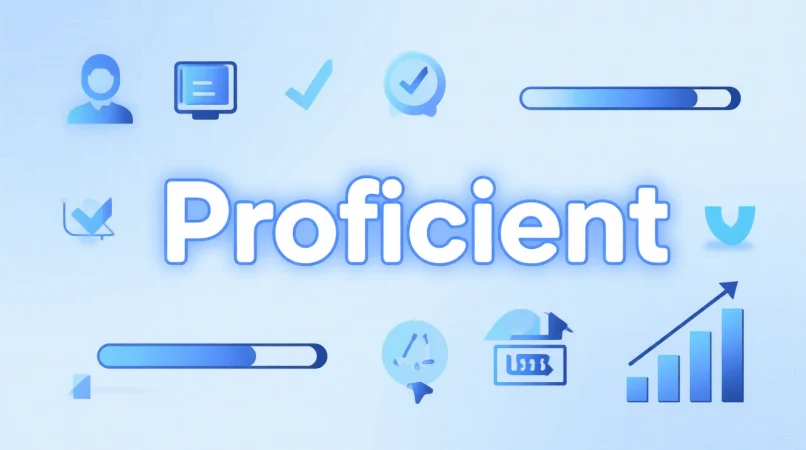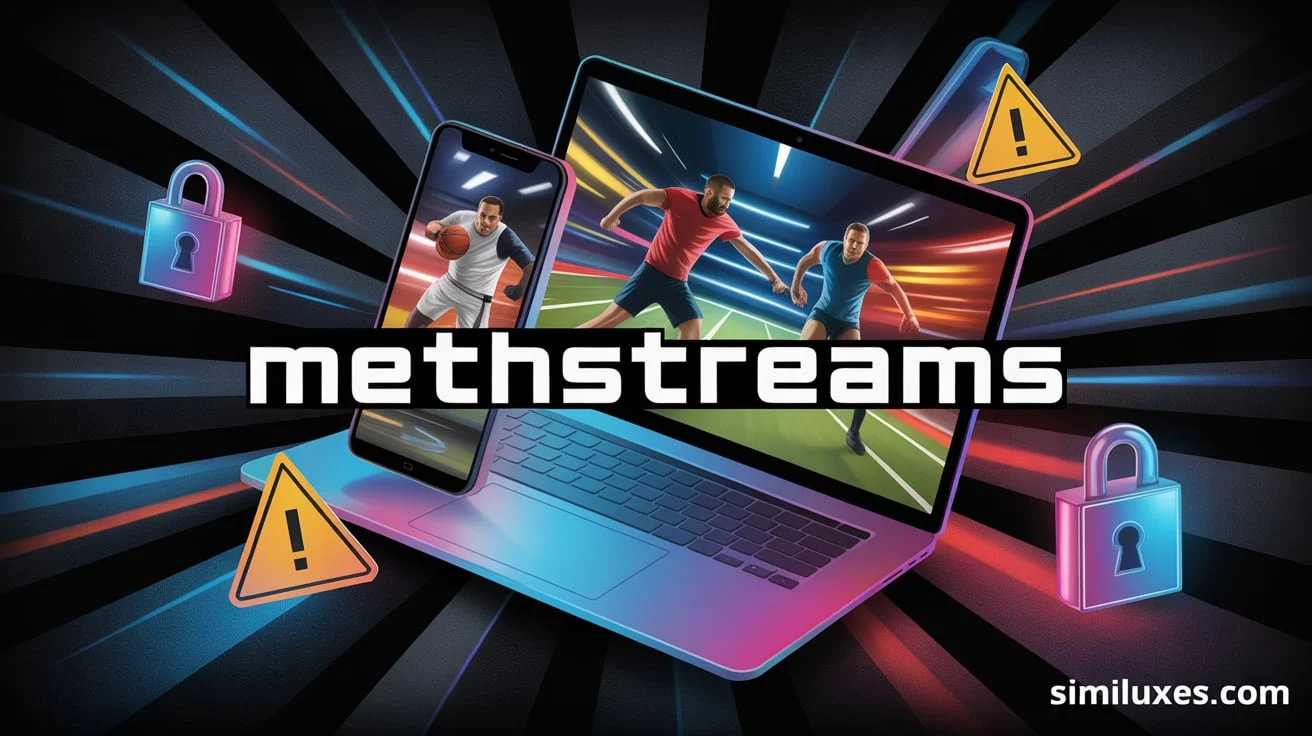“Proficient” means being skilled, capable, or good at something because you’ve practiced or learned it.
People see this word in schools, job resumes, report cards, language tests, and online platforms like Indeed.
Understanding proficient meaning is important because it helps you know how well someone can perform a task, speak a language, use a tool, or master a skill.
If you’re applying for a job, checking a test score, or describing your ability, knowing the exact meaning of “proficient” helps you communicate clearly and confidently.
Let’s break it down in a simple, clear, and friendly way.
Definition & Meaning

“Proficient” means skilled or competent at something.
A person becomes proficient through learning, practice, and experience.
This answers common searches like:
- what does proficient mean
- what does the word proficient mean
- what does proficient mean on a test
- what is proficient mean
Simple Examples
Example 1:
“She is proficient in English.”
→ She can use the language comfortably and correctly.
Example 2:
“He is proficient in Excel.”
→ He knows how to use important tools and formulas.
Example 3:
“Students must be proficient to pass the test.”
→ They must show enough skill to meet the standard.
Important Clarifications
- Proficient does NOT always mean ‘fluent’. (Answers does proficient mean fluent?)
- Proficient means good, not perfect.
- Proficient means capable, not expert.
Background & History
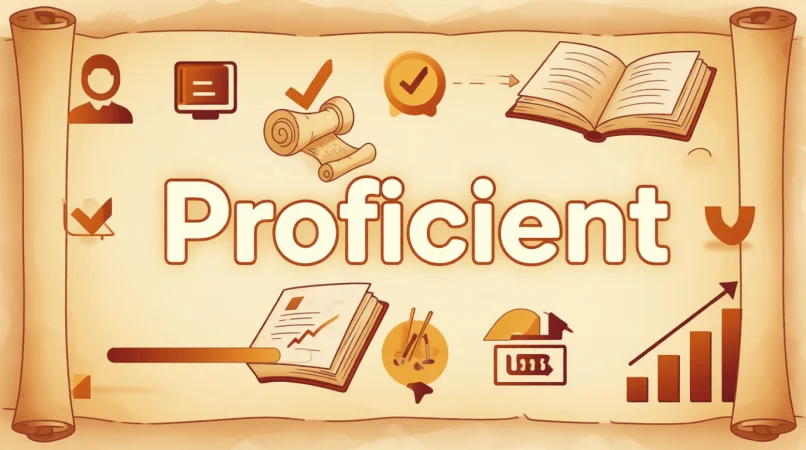
The word proficient comes from Latin “proficere” meaning “to advance” or “to make progress.”
It originally referred to someone who had moved forward enough in a skill to perform it confidently.
Over time, it became a standard word in:
1. Education
Schools use levels like:
- Minimally proficient
- Partially proficient
- Proficient
- Highly proficient
This explains searches like:
- what does partially proficient mean
- what does minimally proficient mean
- what does not proficient mean
- what does proficient mean on a report card
- what does proficient mean in school
- what does scoring proficient mean
2. Language Testing
People look up:
- what does proficient mean in language
because it is used in IELTS, TOEFL, CEFR, and job application language sections.
3. Job Market
Platforms like Indeed and resumes use proficiency levels, which explains searches like:
- what does proficient mean on a resume
- what does proficient mean on Indeed
Usage in Various Contexts
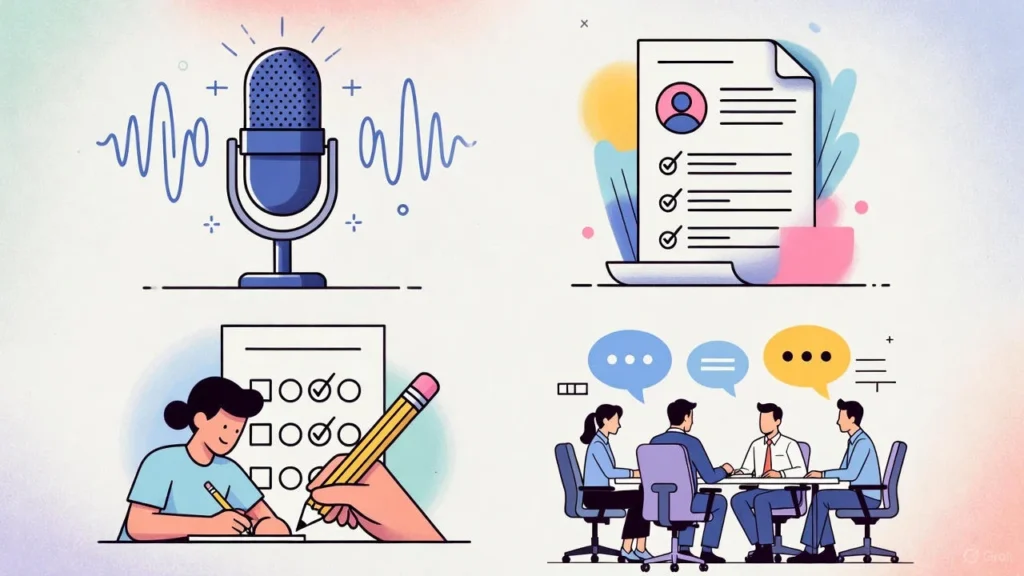
1. Language Skills
“Proficient in English” = You can speak, write, read, and understand well.
It does not always mean fluent.
Dialogue Example:
A: “Are you fluent in Spanish?”
B: “Not fluent, but I’m proficient.”
2. Job Resumes
People often ask what does proficient mean on a resume.
It means:
- You can perform the skill without assistance.
- You can handle tasks confidently.
Example:
“Proficient in MS Office, Canva, and Google Sheets.”
3. School or Tests
Proficient on exams means meeting expected standards.
Example:
“You scored proficient on the reading test.”
4. Workplace
Used to describe skill level:
“He’s proficient in communication and project management.”
Common Misconceptions & Clarifications
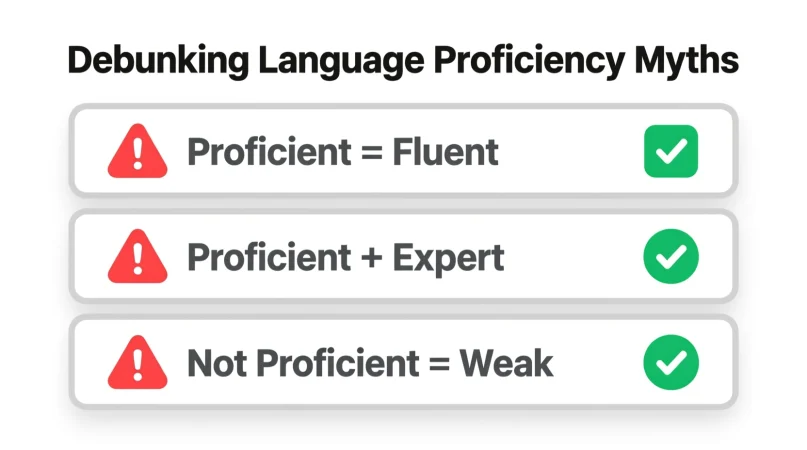
❌ Misconception 1: Proficient = Fluent
Reality: Fluent is higher; proficient is skilled but not necessarily fluent.
❌ Misconception 2: Proficient = Expert
Reality: Expert is advanced; proficient is solid, capable.
❌ Misconception 3: Not proficient = Weak
Reality: It means “needs improvement,” not “bad.”
❌ Misconception 4: Proficient is an exaggeration
Reality: It’s a practical, honest level of ability.
Similar Terms & Alternatives
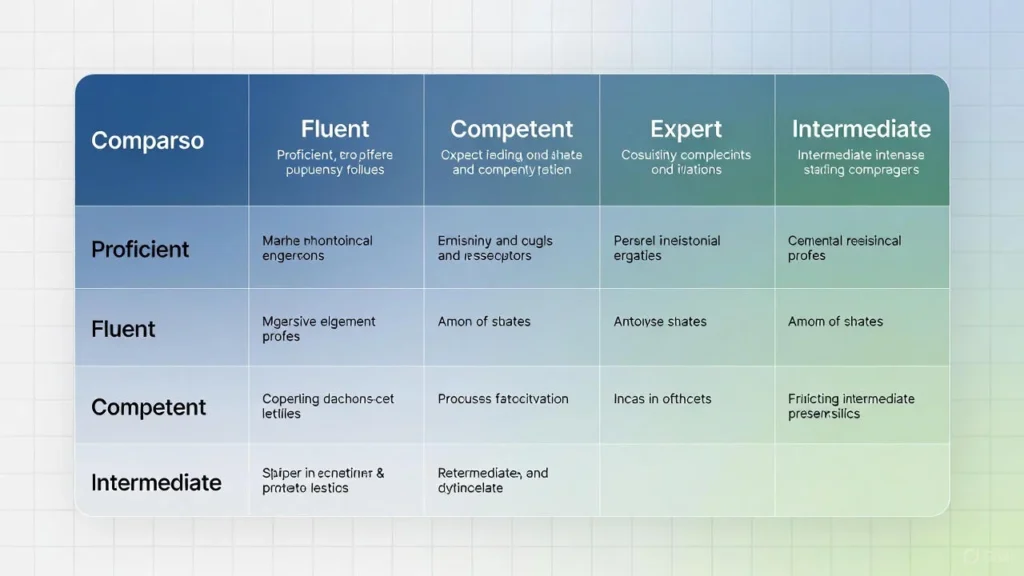
| Term | Meaning | Example Use |
|---|---|---|
| Proficient | Skilled, capable | “Proficient in English” |
| Fluent | Very smooth, natural | “Fluent speaker” |
| Competent | Good enough, reliable | “Competent employee” |
| Expert | Very advanced level | “Expert in programming” |
| Intermediate | Between beginner & proficient | “Intermediate learner” |
How to Respond When Someone Says They Are Proficient

Casual Response
“Oh nice! How long have you practiced?”
Professional Response
“Great. Can you share examples of tasks you can handle?”
Friendly Response
“That’s impressive! Teach me too.”
Interview-Style Response
“What specific tools or skills are you proficient in?”
Regional or Cultural Differences
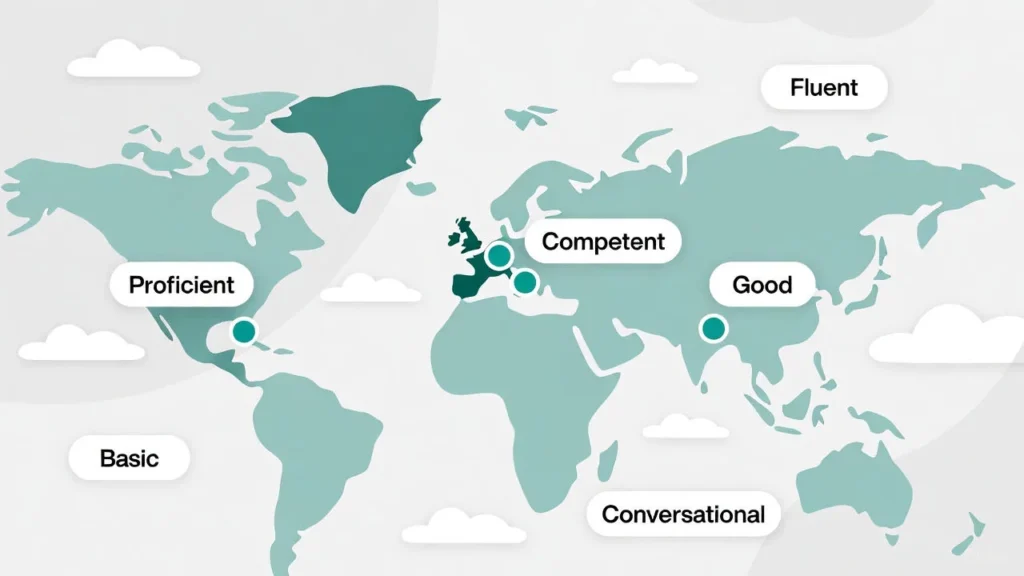
- In the U.S., “proficient” is a standard academic and job term.
- In the U.K., “competent” is sometimes used instead.
- In Asia, “good” is often used instead of proficient but means the same level.
Comparison With Similar Terms
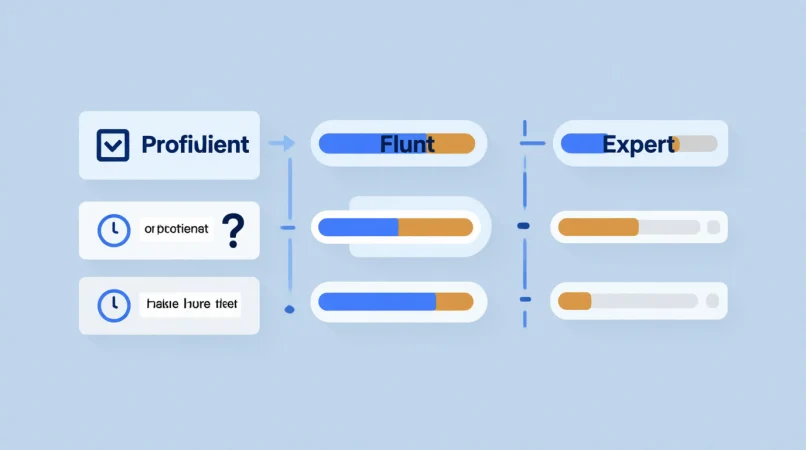
| Feature | Proficient | Fluent | Expert |
|---|---|---|---|
| Skill Level | High | Very high | Mastery |
| Usage | School/job/language | Mostly languages | Specialized fields |
| Meaning | Skilled | Smooth & natural | Deep mastery |
Usage in Online Communities & Platforms
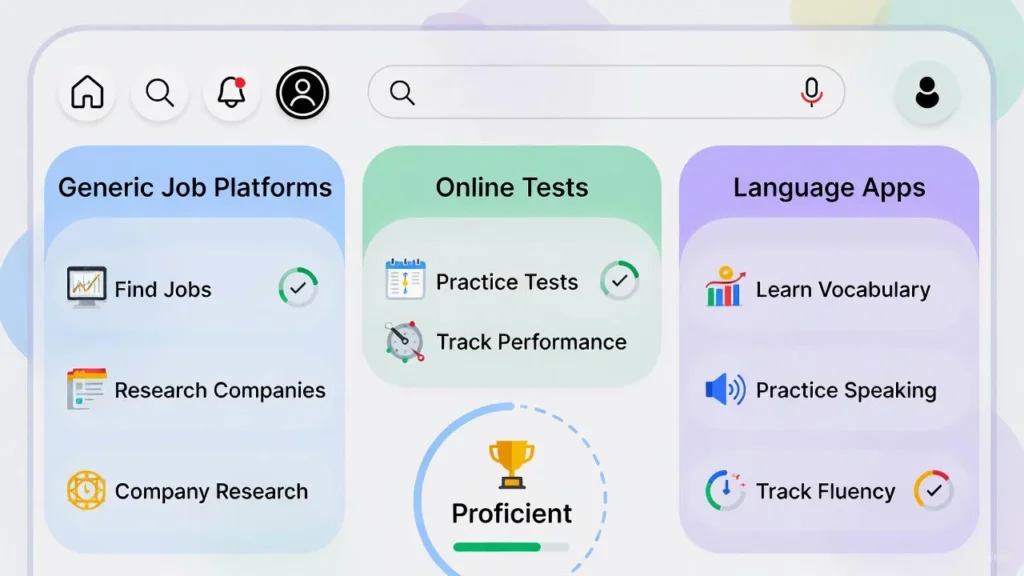
1. Indeed
People want to know what does proficient mean on Indeed.
It means you have a strong, verified skill level.
2. Tests
Being proficient means you passed or met expectations.
3. Language Apps
Used as a skill rating like “Beginner → Intermediate → Proficient → Fluent.”
Hidden or Offensive Meanings?
There are none.
“Proficient” is neutral, positive, and professional.
Suitability for Professional Communication
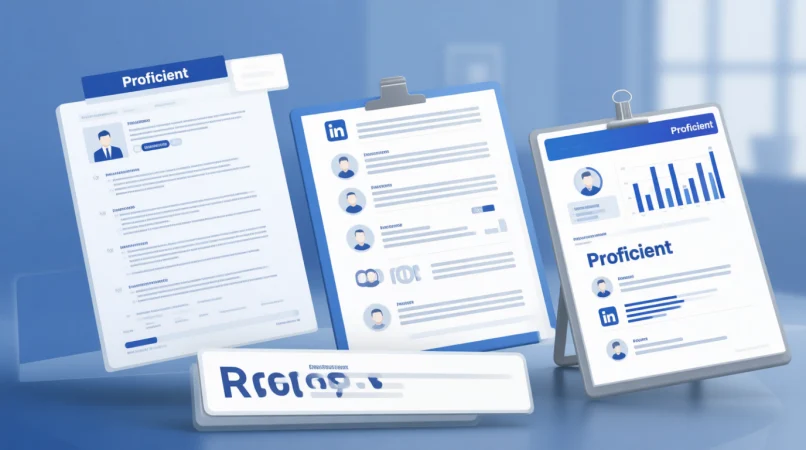
Proficient is perfect for:
✔ Resumes
✔ Job interviews
✔ LinkedIn
✔ Academic reports
✔ Skill evaluations
Professional alternatives:
- Competent
- Skilled
- Capable
- Advanced level
FAQs
1. What does proficient mean?
It means skilled or good at something.
2. Does proficient mean fluent?
No — fluent is higher.
3. What does proficient mean on a resume?
It means you can perform the skill confidently and without help.
4. What does not proficient mean?
It means you need improvement.
5. What does highly proficient mean?
It means very skilled, near-expert.
6. What does proficient mean on a test?
It means you met the expected standard.
7. What does proficient mean in language?
It means you can use the language comfortably, but maybe not fluently.
Conclusion
“Proficient” is a simple but powerful word that describes a solid level of skill.
If you see it on a resume, report card, language test, or job listing, it tells you that someone is capable and confident in that ability. It doesn’t mean perfect, expert, or fluent — it simply means “good enough to work smoothly and correctly.”
Understanding proficient meaning helps you describe yourself more accurately in school, interviews, work tasks, or learning goals.
Now you know the difference between proficient, fluent, expert, competent, and intermediate — so you can communicate with confidence and clarity.

